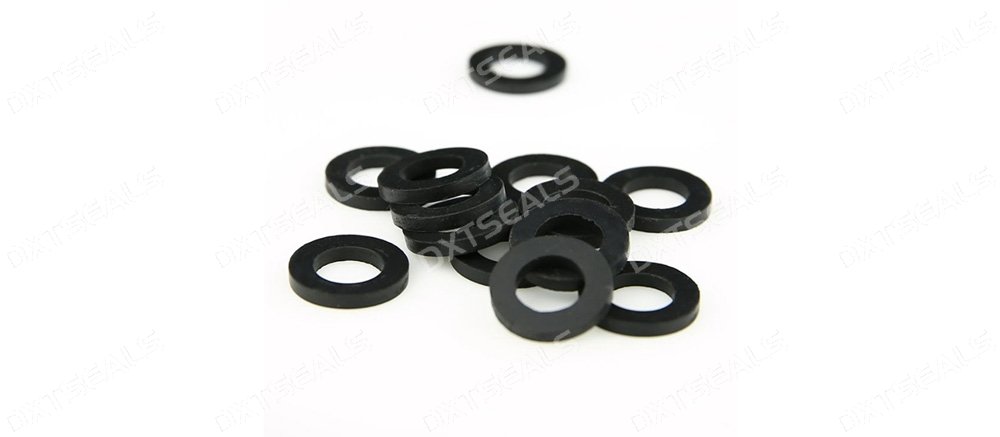
Rubber gaskets play a crucial role in ensuring the safety and efficiency of food production processes. From sealing pipelines to maintaining hygiene in storage and processing equipment, rubber gaskets are indispensable components in the food industry. This article explores their key applications and highlights the safety features that make them suitable for use in food-grade environments.
Key Applications of Rubber Gaskets in the Food Industry
1. Sealing Pipes and Valves
Rubber gaskets are widely used to seal pipelines and valves that transport liquids, gases, and semi-solid materials in food processing plants. They ensure airtight and leak-proof connections, preventing contamination and maintaining the quality of food products.
2. Storage Tank Sealing
In storage tanks for liquids like milk, juices, or oils, rubber gaskets provide secure seals to protect against leaks and contamination. These gaskets are essential for maintaining product freshness and ensuring compliance with hygiene standards.
3. Food Packaging Equipment
Rubber gaskets are an integral part of food packaging machinery, ensuring that sealing processes are efficient and contamination-free. They are used in vacuum sealers, heat sealers, and other automated packaging systems.
4. Sanitary Fittings in Processing Equipment
Food-grade rubber gaskets are used in mixers, blenders, and other processing equipment to prevent leaks and maintain cleanliness. Their flexibility and sealing ability make them ideal for dynamic components.
5. Applications in Dairy and Beverage Industries
In the dairy and beverage industries, rubber gaskets are used in pasteurization systems, filling machines, and bottle capping equipment. They ensure that food and beverages are processed and packaged under safe and hygienic conditions.
Safety Features of Rubber Gaskets in the Food Industry
The safety of rubber gaskets is paramount when used in food processing and packaging. Here are the critical safety features:
1. Food-Grade Materials
- Rubber gaskets used in the food industry are typically made from FDA-compliant materials such as silicone, EPDM, and nitrile rubber.
- These materials are free from harmful chemicals, ensuring they do not leach toxins or contaminants into food products.
2. Resistance to Temperature Extremes
- Food processing often involves exposure to extreme temperatures, such as high heat during pasteurization or freezing temperatures during storage.
- Rubber gaskets designed for food applications can withstand a wide temperature range without degrading or compromising their sealing properties.
3. Non-Toxic and Odor-Free
- Food-grade rubber gaskets are non-toxic and do not impart odors or flavors to food products. This ensures the integrity of the food's taste and quality.
4. Easy to Clean and Maintain
- Rubber gaskets in the food industry are designed to be easily cleaned and sanitized. This is crucial for maintaining hygiene and preventing bacterial growth.
5. Chemical Resistance
- These gaskets are resistant to oils, fats, and cleaning agents commonly used in food production. This ensures durability and longevity even under frequent cleaning cycles.
6. Compliance with Industry Standards
- Food-grade rubber gaskets meet stringent safety standards, including FDA, NSF, and EU regulations, ensuring their suitability for direct contact with food.
Advantages of Using Rubber Gaskets in the Food Industry
- Enhanced Hygiene: Rubber gaskets create reliable seals that prevent contaminants from entering food products.
- Cost-Effective: Their durability reduces the need for frequent replacements, lowering maintenance costs.
- Versatility: Rubber gaskets are available in various shapes, sizes, and materials, making them adaptable to different equipment and applications.
- Sustainability: Modern food-grade gaskets are often designed with eco-friendly materials, aligning with sustainability goals in the food industry.
Choosing the Right Rubber Gasket for Food Applications
Selecting the right rubber gasket for food-grade applications requires careful consideration of several factors:
1. Material Compatibility
- Ensure the gasket material is compatible with the specific food product and processing conditions, such as temperature and pressure.
2. Regulatory Compliance
- Choose gaskets certified by recognized food safety authorities, such as the FDA or NSF.
3. Durability
- Assess the gasket's resistance to wear, tear, and frequent cleaning cycles.
4. Customization
- Consider customized gaskets for equipment with unique requirements or irregular dimensions.
5. Supplier Reliability
- Work with a reputable supplier who provides high-quality, food-grade gaskets and technical support.
Conclusion
Rubber gaskets are indispensable in the food industry due to their sealing efficiency, safety features, and adaptability to various applications. From maintaining hygiene in food processing to ensuring the safety of packaged products, rubber gaskets play a vital role in modern food production.
By choosing the right material and ensuring compliance with food-grade standards, businesses can optimize their operations while safeguarding consumer health. For reliable, high-quality rubber gaskets tailored to your food industry needs, consult experienced manufacturers and suppliers.
